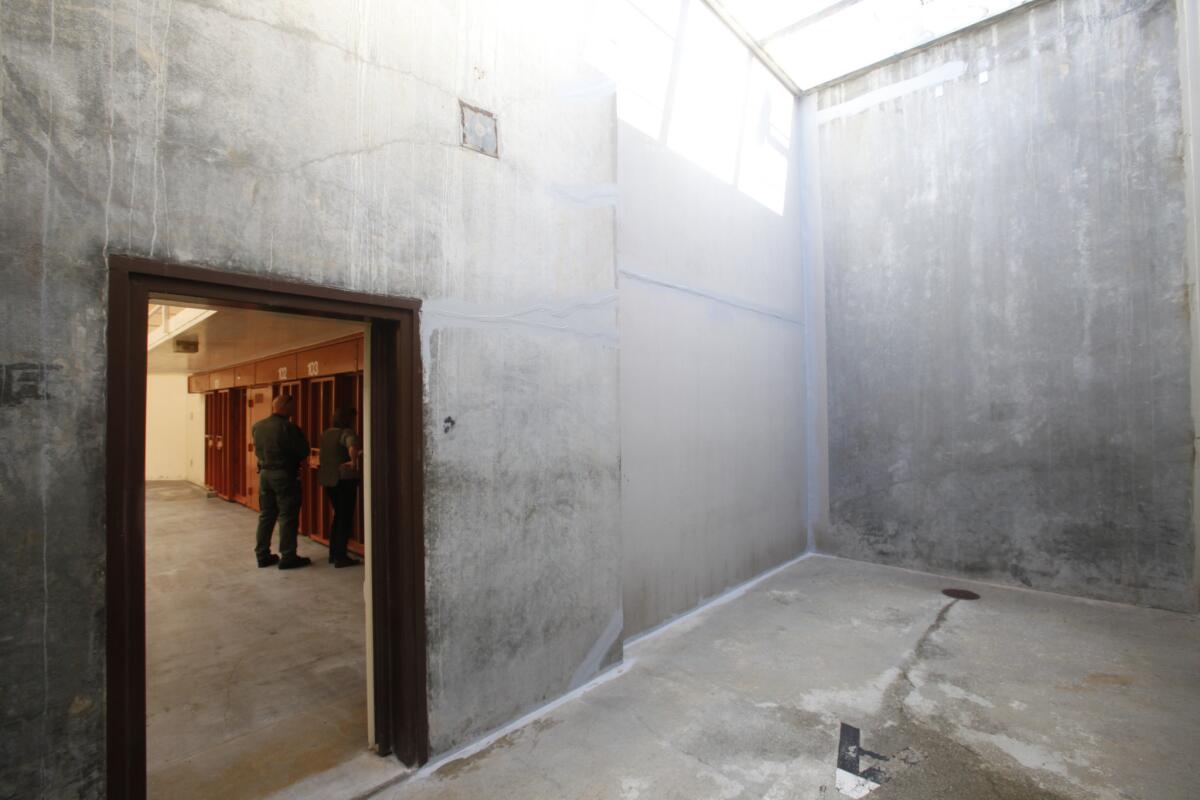Talks will continue even after inmates end hunger strike

- Share via
SACRAMENTO -- Protest leaders issued a statement shortly after 9 a.m. declaring the two-month hunger strike by California prison inmates over but adding that the protest itself is only “suspended.”
“To be clear, our Peaceful Protest of Resistance to our continuous subjection to decades of systemic state-sanctioned torture via the system’s solitary confinement units is far from over,” according to the statement, relayed through former state Sen. Tom Hayden. “Our decision to suspend our third hunger strike in two years does not come lightly. This decision is especially difficult considering that most of our demands have not been met.”
Members of the inmate advocacy team who met with state corrections officials on-and-off during the strike said the promise of legislative hearings was just one element in the decision to end the 60-day protest.
Corrections officials never departed from the contention they would not negotiate with participants of what the state called a “disturbance,” but they have agreed to more involved discussions.
Mike Stainer, the state’s director of prisons under Corrections Secretary Jeffrey Beard, has promised to travel to Pelican Bay State Prison this month to discuss inmates’ demands, the inmate advocacy team members said in a statement.
“One prisoner described such meetings as ‘historic,’” the statement said.
A spokeswoman for the corrections department confirmed Stainer’s intention to meet with the protest leaders and noted he has held previous discussions with them.
“Mike Stainer, as he did before the hunger strike, will be meeting with hunger strike leaders later this month to explain and discuss SHU policies,” said spokeswoman Deborah Hoffman.
Inmate advocates said that the protesters never asked to be released or for sentence reduction, only to be free from isolation and to have livable conditions.
“We herald this day as the beginning of a new understanding that prisoners are human beings, with legitimate rights, and the realization that when the state restricts some freedoms, it also assumes responsibilities to treat people justly and humanely,” the statement read.
ALSO:
How the strike ended: a meeting in the law library
Analysts: Brown’s prison plan doesn’t solve long-term problems
Lawmakers call for hearings on prison conditions, hunger strike
More to Read
Get the L.A. Times Politics newsletter
Deeply reported insights into legislation, politics and policy from Sacramento, Washington and beyond. In your inbox twice per week.
You may occasionally receive promotional content from the Los Angeles Times.











